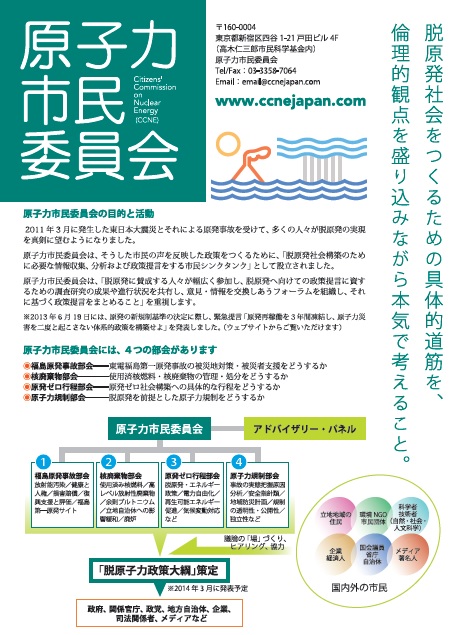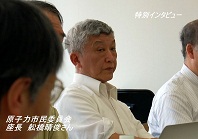追記:ICRPから9月15日付の回答がありました
国際放射線防護委員会(ICRP)の勧告案「大規模原子力事故における人と環境の放射線防護」の改定プロセスに関する原子力市民委員会の公開書簡に対し、ICRPから回答レター(2019年8月20日付)![]() が届きました。
が届きました。
原子力市民委員会は、福島原発事故による直接的かつさまざまな被害の経験がいまも続く日本の当事者に広く開かれた公平なプロセスが不可欠であると考えており、(1)改定案の正式な日本語訳、(2)日本語で提出されたコメントの公平な扱い、(3)提出されたコメントに対するフィードバック、(4)コンサルテーション期間の正式な延長、(5)さらなるICRP主催の公聴会の開催、を求める書簡を改めて9月9日提出いたしました。下記はその和訳です。
【追記】9月15日付けでICRPより回答がありました。ICRPからの回答レター(9月15日付)![]()
|
2019年9月9日
ICRP勧告案「大規模原子力事故における人と環境の放射線防護」に関する
パブリックコンサルテーションについて 皆様 原子力市民委員会の8月9日付公開書簡に対し、クリス・クレメント氏と甲斐倫明氏からの8月20日付のご回答をありがとうございました。その後、9月2日に東京で開催された市民団体主催の学習会には甲斐氏が出席し、勧告案を説明されました。大変意義深い会合となり、参加者からは多くの質問が挙げられ、甲斐氏の応答でクリアとなった問題もあります。甲斐氏のご尽力に心より感謝申し上げます。しかしながら、この学習会では、福島原発事故による被害の実態に関する日本の市民の認識とICRPのドラフトに書かれている内容(特にAnnex B)に大きな齟齬があることも明らかとなりました。また、勧告案に使われている用語の意味や解釈に多くの問題があることもわかりました。現在、日本の複数の市民団体が共同で勧告案全文の仮訳を進めていますが、正確なものとするにはタスクグループ93のメンバーにこれを点検してもらうことも必要です。私たち原子力市民委員会は、福島原発事故を実際に経験した日本の当事者がICRPの勧告案を適切に理解し、コンサルテーション期間に建設的なコメントを寄せるために、勧告案の正式な日本語版が必須であると強く考えます。 ICRPが勧告案に対する日本語のコメントをウェブサイトで受け付けるとしたご判断を歓迎いたしますが、私たちはそれらのコメントがICRPでどのように扱われるかについて、懸念を抱いています。甲斐氏は9月2日の学習会で、ICRPあるいはタスクグループ93の日本人メンバーがコメントの「要点を整理」し、英訳してICRPの会議資料にすると説明しました。これは公平な扱いとは言えないのではないでしょうか。ICRPの国際的なメンバーにも日本からのコメントの内容を十分に把握し吟味していただけるよう、全文を英訳することが不可欠です。また、ICRPは通常パブリックコメントに対する回答はしないと甲斐氏は説明されました。しかし、私たちは大規模な原発事故後の放射線防護の改善にあたって、ステークホルダーの間にある齟齬や不同意を減らすためにも、ICRPの見解をフィードバックしていただくよう強く期待します。 また、ICRPは改定案に対する日本語でのコメントを10月25日まで受け付けると発表しました。しかし、ウェブサイトを見ると、正式なコンサルテーション期間は9月20日までとされています。このことが日本の市民の間に混乱をもたらしています。日本語でのコメントは正式なものとみなされるのでしょうか。先の公開書簡の中で、私たちはICRPに対して期間を延長し、最短でも年末までコメントを受け付けるよう提案しました。原子力市民委員会は、寄せられたコメントの公平な扱いに関する混乱を避け、私たちが求めている公聴会での成果を反映するためにも、コンサルテーション期間の正式な延長をICRPに再度求めます。 10月25日の東京でのシンポジウムのプログラムが公表されたことを確認しました。一般市民との質疑や議論の時間が限られていることを残念に思うとともに、午後の部は登壇者が全員日本人であるにもかかわらず発表は英語で行われ、日本語通訳が入らないのは、いささか不合理ではないかと考えます。私たちは、福島原発事故の被害を受けた人々が広く参加できることが必要であることを再度申し上げます。こうした問題について、ICRPは「福島ダイアログ」などの機会を見つけて説明し、討論してきたとのご回答でしたが、福島ダイアログの目的と参加者は限定されたものであり、福島原発事故による全ての被害を対象としたものではないと理解しています。原発事故による直接的かつさまざまな被害を受けた人々は他にも多数おり、その中には今も避難を継続している人々や避難の権利を求めている人々がいます。もしICRPが真に広く開かれた公平な協議のプロセスを持つ意思があるのであれば、現在も原発事故による被害を受け続けている人々の声に耳を傾けることが不可欠であり、そのような声は勧告案の改善に最も価値あるインプットとなるものです。 再度、ICRPによるさらなる積極的な対応を求めて、私たちは以下を求めます。
(1)改定案の正式な日本語訳
できれば、2019年9月18日までにご返信をいただけると幸甚です。 |
|
September 9, 2019
Claire Cousins, Chair, ICRP re: Public consultation on the draft of “Radiological Protection of People and the Environment
in the Event of a Large Nuclear Accident” Dear Sirs, Thank you very much for the reply letter from Mr. Clement and Dr. Kai of August 20th to our letter of August 9th. Subsequently, a public meeting was held by citizen groups on September 2nd in Tokyo, inviting Dr. Kai to explain the contents of the draft report. It was a worthwhile meeting. Quite a number of questions were raised by the participants, and Dr. Kai’s answers clarified some of the issues. We are very grateful to Dr. Kai for his valuable contribution. However, it also became clear during the meeting that there were considerable discrepancies between the Japanese public recognition and the ICRP’s view in the draft report (particularly Annex B) regarding the realities of the adverse effects of the Fukushima nuclear power plant accident. We have also found that there are a number of terminology issues. So far, only a summary translation has been provided from ICRP. Civil society groups are jointly preparing a volunteer translation of the full draft, but it would need inspection and review by TG93 members for precision. We firmly believe that an official Japanese edition of the draft ICRP report is essential so that the Japanese public, who are experiencing the Fukushima disaster at first hand, should understand the ICRP proposals properly and could offer constructive comments for the current consultation process. Although we welcome your recent decision to accept comments in Japanese on your website, we are concerned about how those comments submitted in Japanese will be treated at ICRP. Dr. Kai explained, at the September 2nd meeting in Tokyo, that the Japanese members of the ICRP/TG93 would “summarize” the Japanese comments and translate the summary into English for ICRP’s internal meetings. We cannot regard this treatment fair enough. It is indispensable for ICRP to translate all of the Japanese submissions into English so that the comments are fully shared and reviewed by the international members of ICRP. Dr. Kai also said that ICRP normally would not prepare replies to the public comments. We strongly expect ICRP to provide feedback in order to reduce discrepancies and disagreements that exist among the stakeholders concerning better ways of the radiological protections after the severe nuclear accident. Also, ICRP announced to accept comments on the draft recommendation in Japanese by October 25th. It still appears, however, that the formal consultation period ends on September 20th as publicized on the website. This has caused confusion among civil society members here in Japan whether or not the comments submitted in Japanese are officially accepted. In our previous letter, we proposed that the comment period be substantially extended, at least until the end of the year. We request again that ICRP should extend consultation period formally in order to avoid any confusion about the fair treatment of the public comments and to reflect the outcomes of additional public meetings we have requested. We take note that a symposium will be held in Tokyo on October 25th and its program has been publicized. We are disappointed to find that the program include only a limited time for questions and discussions with the general public; we also find it rather impracticable that the entire afternoon session is without Japanese interpretation despite all of the lecturers are Japanese. We reiterate the necessity of a wider inclusion of those affected by the Fukushima accident. You mentioned that ICRP had already explained and discussed the matter in the opportunities such as “Fukushima dialogue.” We understand that the Fukushima Dialogue has limited focus and participants and has not cover the full range of the damage caused by the Fukushima accident. There are a large number of other people directly and variedly affected by the accident, including those who continue to evacuate or who are seeking the right to evacuate. If ICRP is truly willing to carry out an open and fair consultation process, it is essential that you should listen to the voices of the people who are under the ongoing adverse effects of the large nuclear accident. Such voices would compose most valuable inputs for the improvement of the ICRP recommendations.
To recap, we request ICRP to take further positive steps in the following:
We would appreciate your response possibly before September 18th, 2019. Yours sincerely,
Kenichi Oshima, Chair, CCNE (Professor, Ryukoku University, Kyoto, Japan) |

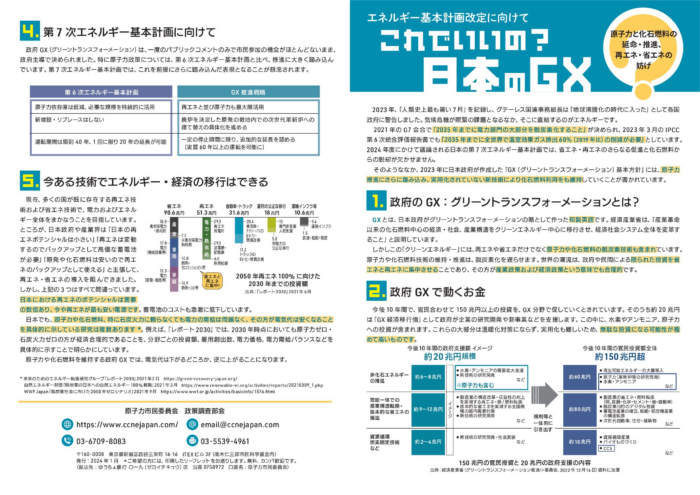
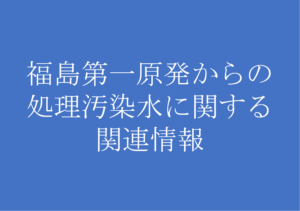
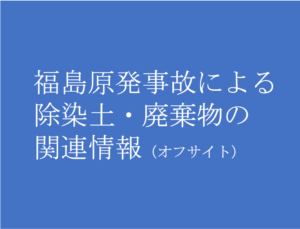
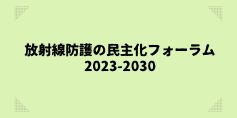
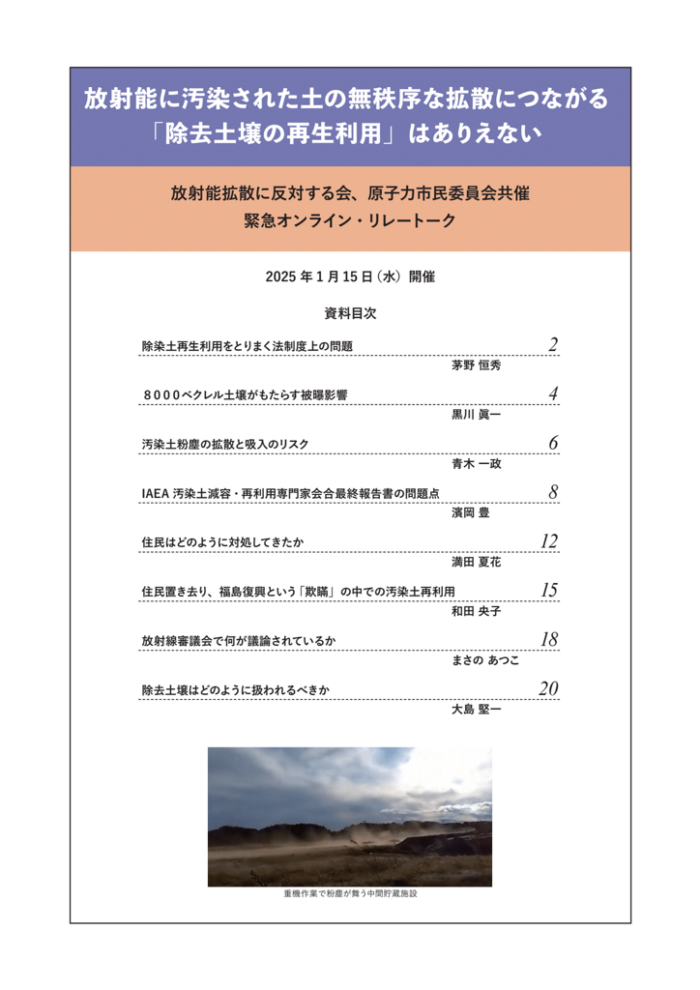
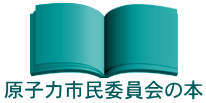
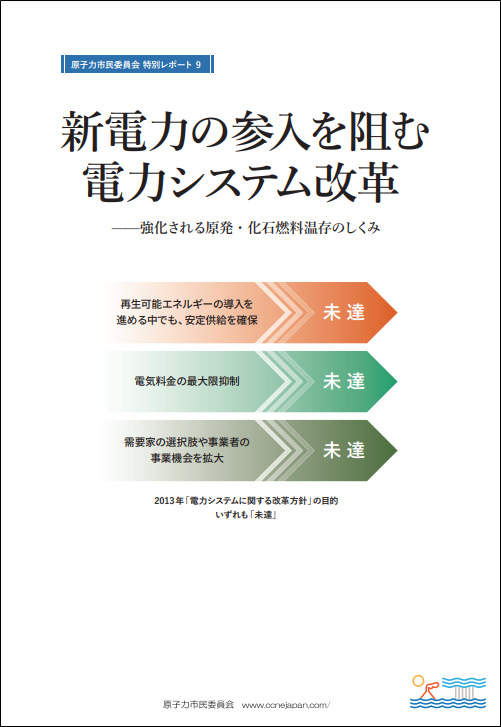
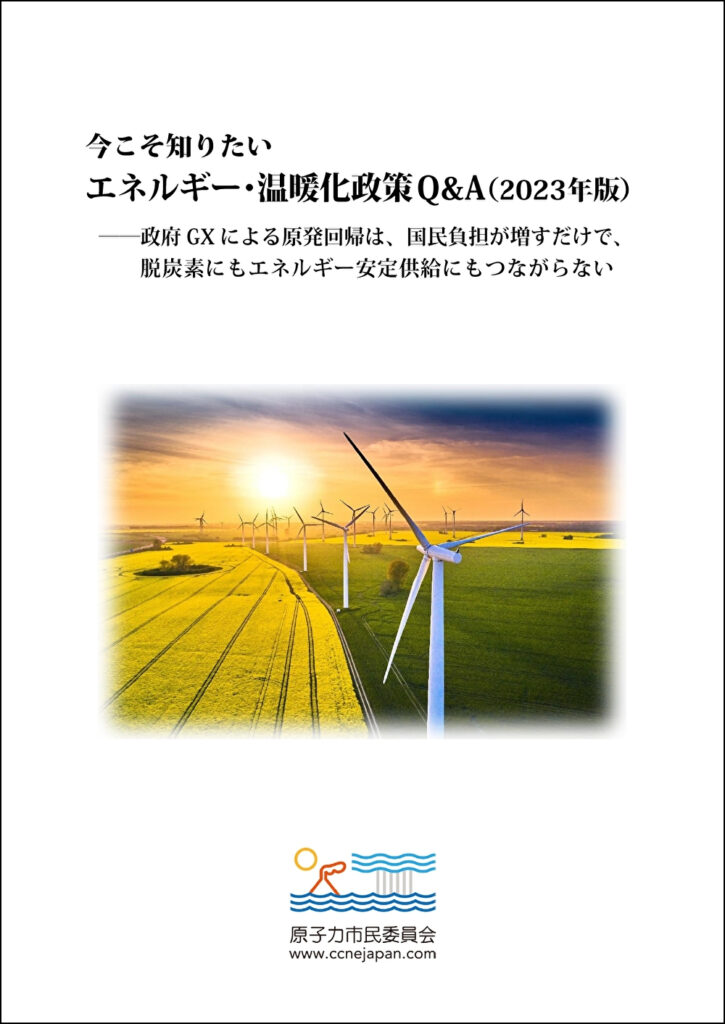
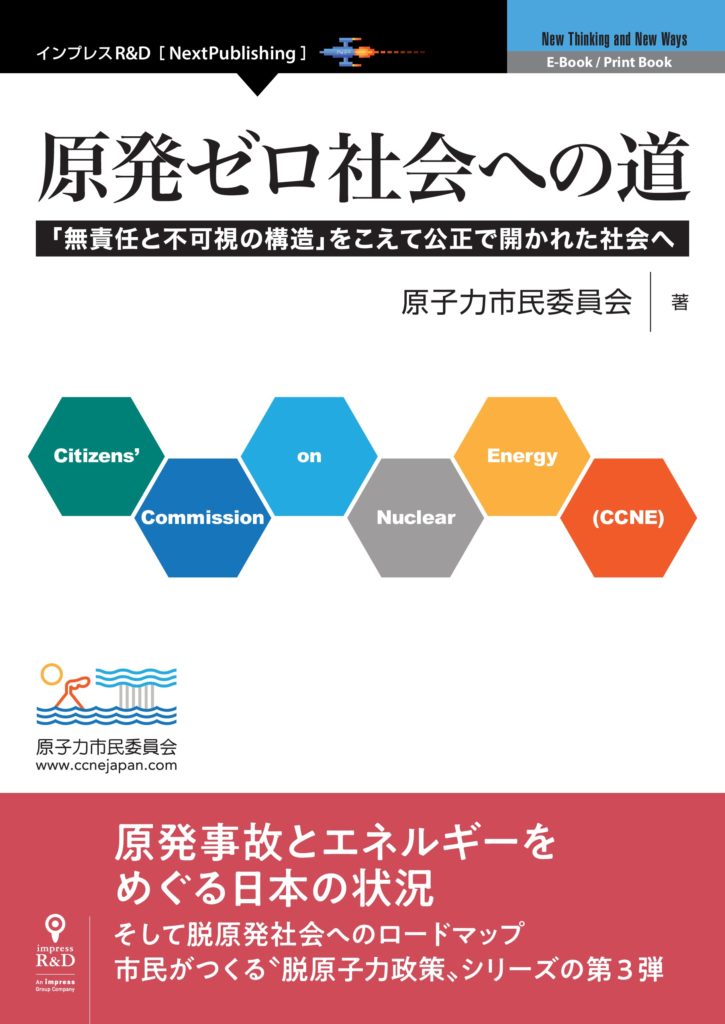
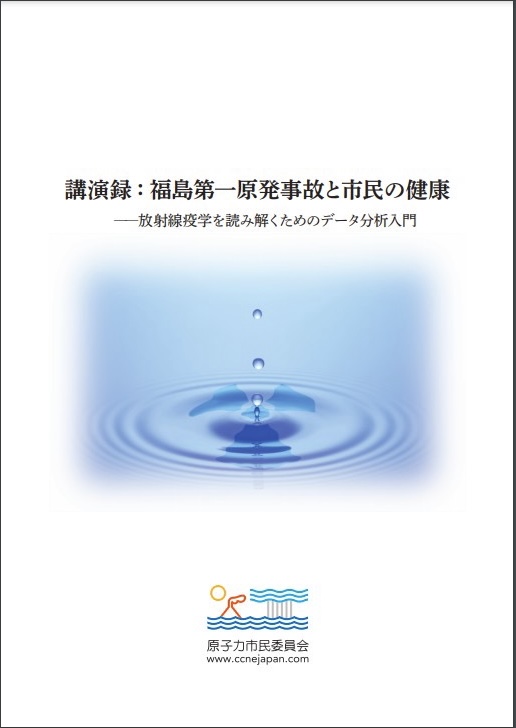
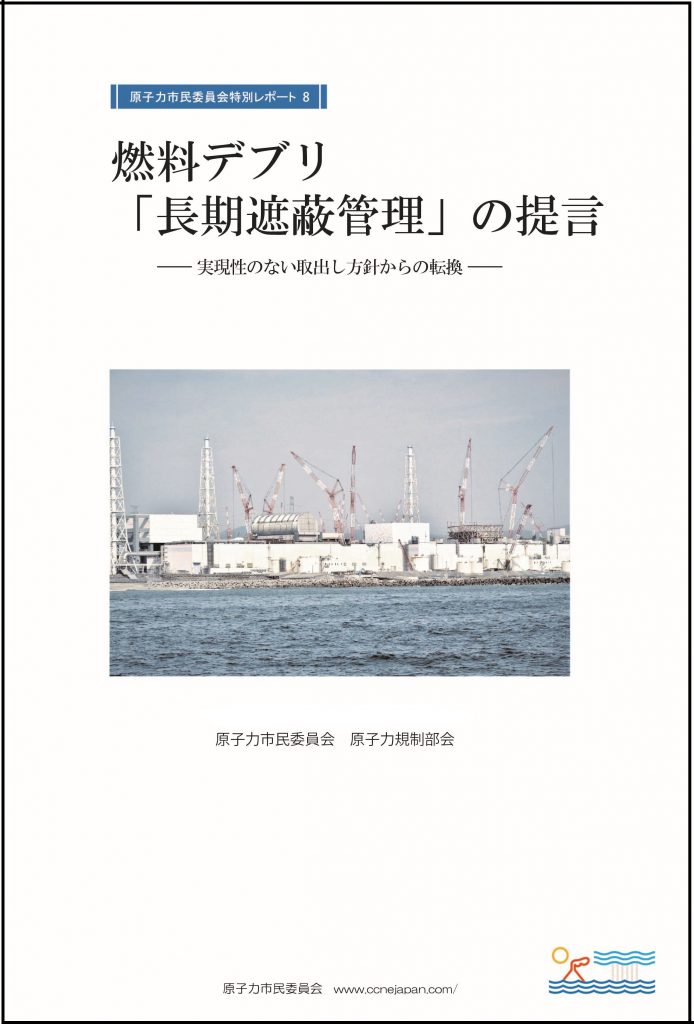
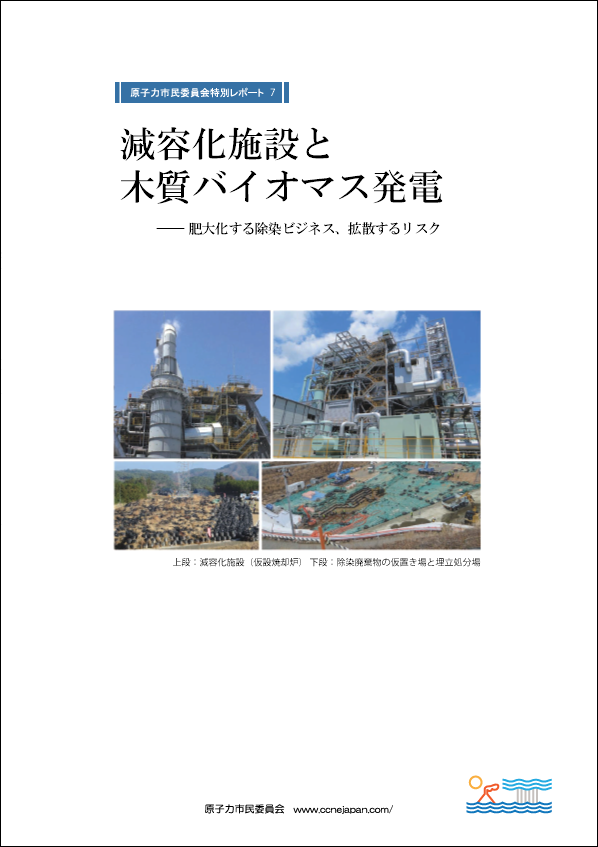
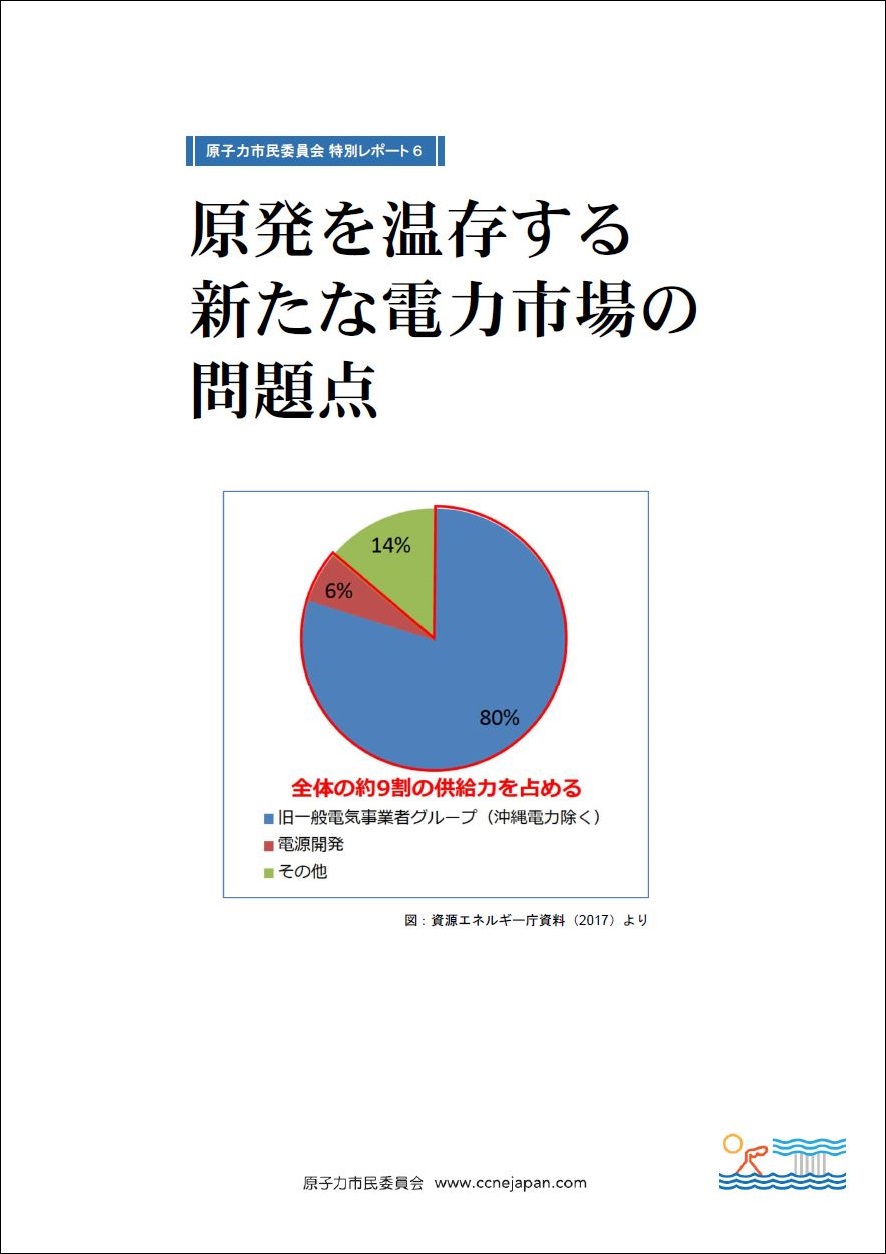
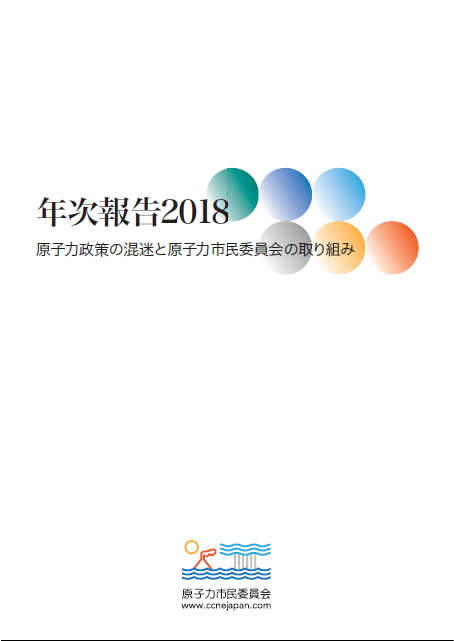
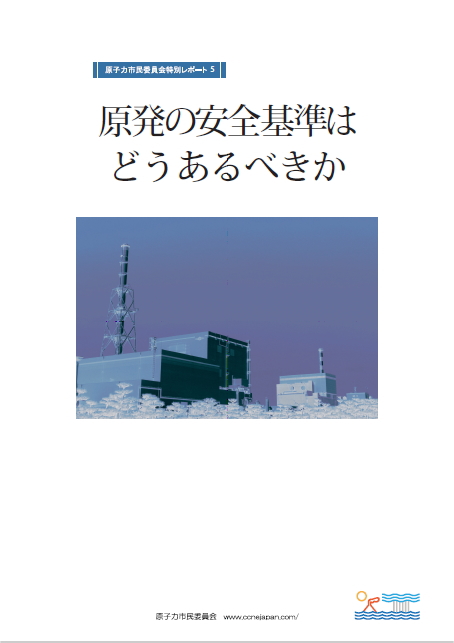
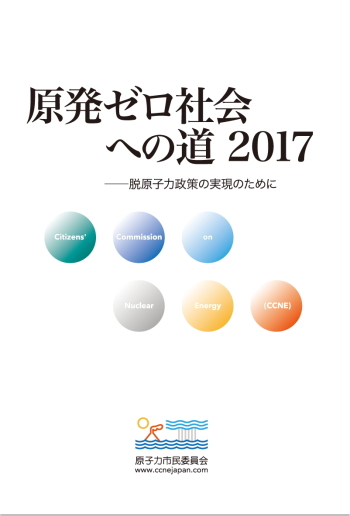
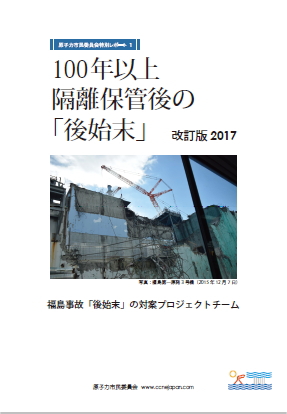
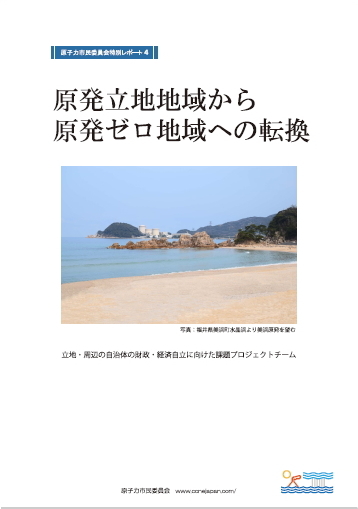
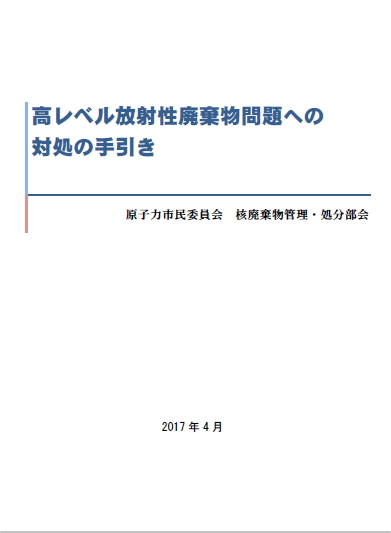
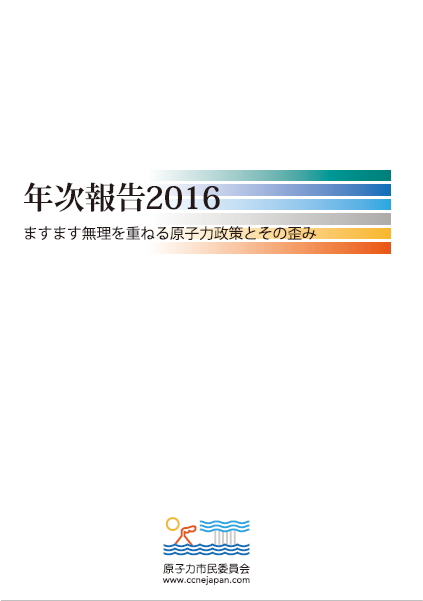
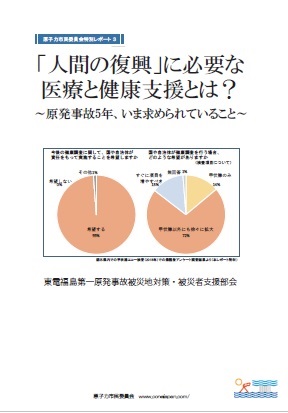
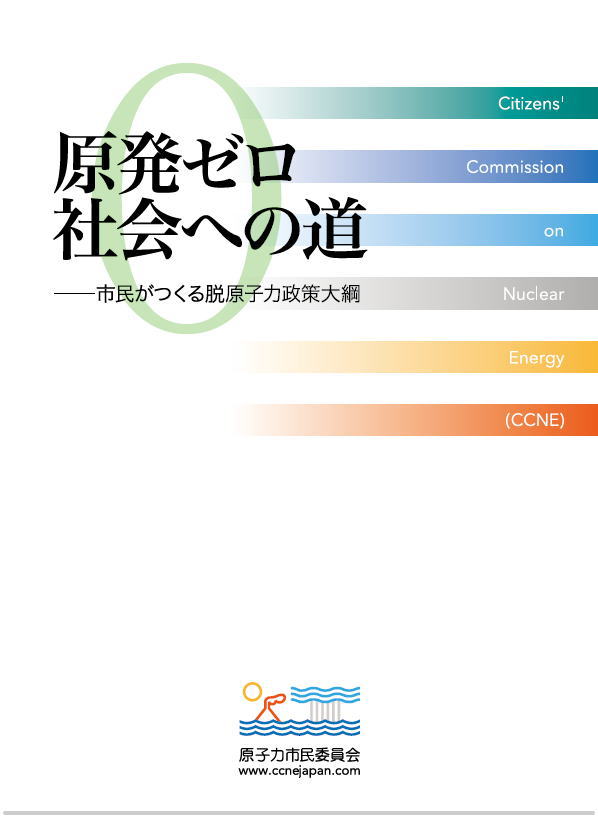 『原発ゼロ社会への道――
『原発ゼロ社会への道――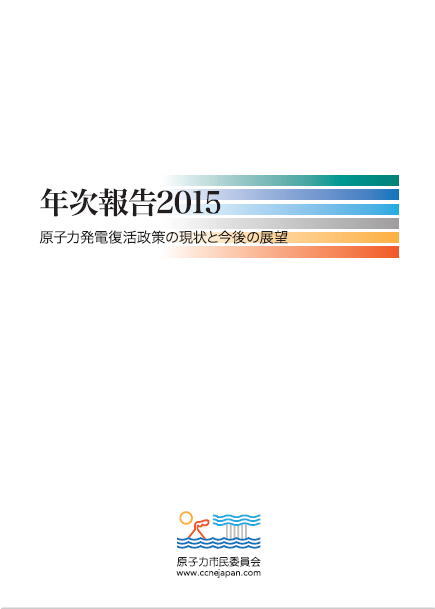
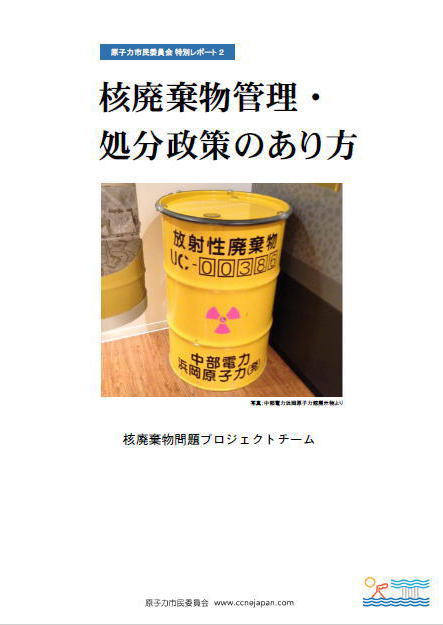
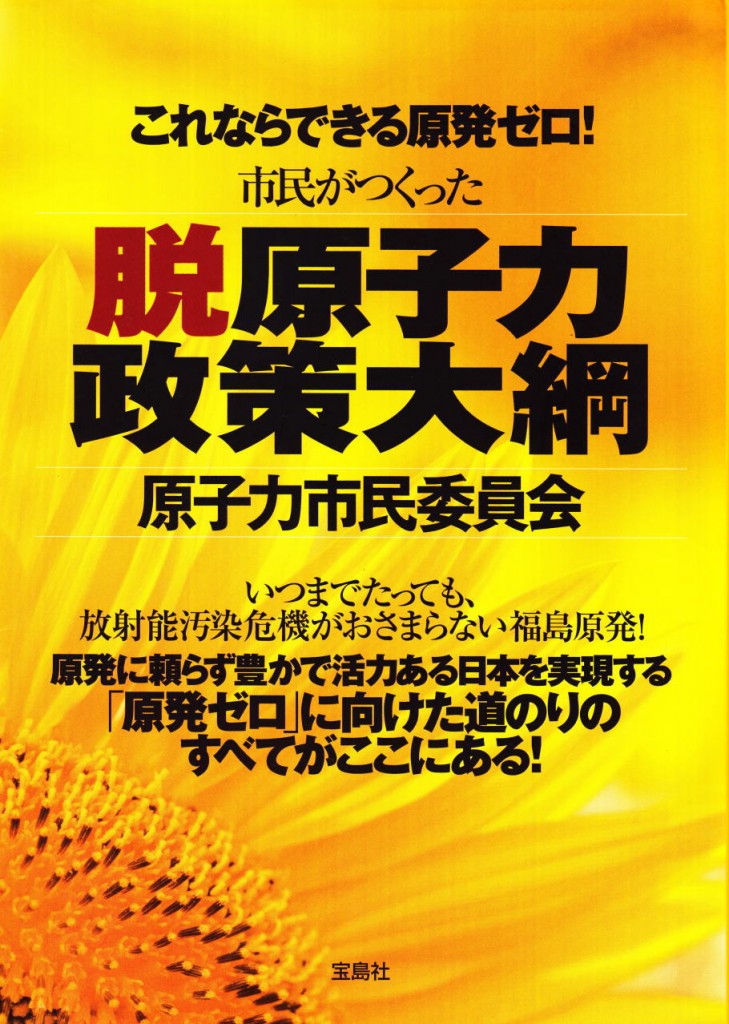 『これならできる原発ゼロ!
『これならできる原発ゼロ!